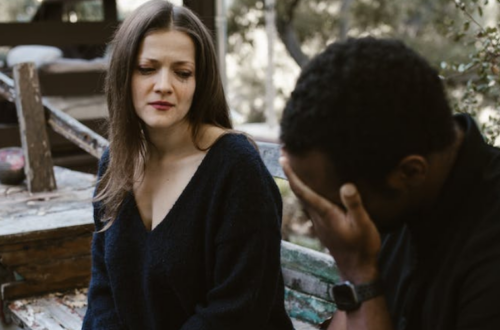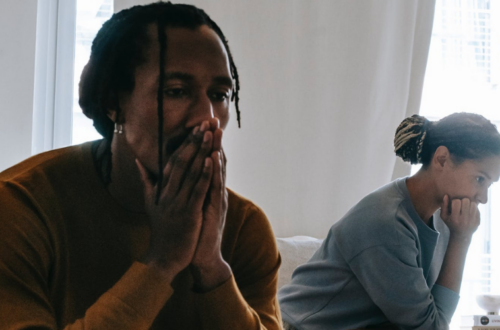Eight Ways to Know if It’s Love or Lust
How do you prove if it’s love or lust? Does it feel like having butterflies in your stomach, feeling giddy when you’re together, and constantly daydreaming about your life together? Or, does it feel secure, calm, and being home—at last?
To hit all your answers confidently, let’s talk about the difference between love and lust. Let’s also figure out how to tell if it’s actually love or lust.
Is it love or lust?
In the first part of a relationship, it can be hard to tell the difference between love and lust. The swirl of emotions and chemicals that courses through your system drive your mind and body wild.
However, scientists say it’s not as simple as love or lust despite the many opinions about this concept. Most times, it operates via a spectrum.
A team of scientists, led by Dr. Helen Fisher at Rutgers University, distilled romantic love into three categories:
- Lust
Lust, or as Insider calls, “sex drive,” is an unbridled sexual attraction to another person. Hormones like testosterone and estrogen are supercharged when someone’s feeling lustful, driving someone mad for physical intimacy.
While lust can ultimately help form a deeper emotional bond between two people, it can also be a symbol of false idealization and projection. Somehow, it makes you daydream about what you want to see and experience rather than living your reality.
- Attraction
Attraction, or as Insider calls, “romantic love,” is a type of love in which intimacy and passion are notable qualities. They’re a form of physical connection associated with intoxication and emotional connection.
In this phase, one half of the couple often idealizes the other—if not both. Somehow, the sensations they bear can imitate the feeling of drug addiction. It is when couples constantly crave that feel-good substance they get from hanging out with each other.
Couples in this stage can’t think straight because both just want to be with each other all the time. They are rarely hungry and can’t sleep well.
- Attachment
Attachment or companionate love feels like being calm and at home at long last. It also feels like finally having a security blanket or someone to protect.
Love and lust are not identical, and anyone in companionate love knows this. These emotions can appear in any medley—with or without the other and to varying degrees.
You can mostly find this in committed and long-term romantic relationships. In this stage, you feel a sense of calm, contentment, and security. Friendships and families also fall into the bracket.
Love or Lust—how to know the difference
The definitions of love and lust can sometimes get mixed, especially when hormones and brain chemicals come into play. If you’re worried if your relationship is simply based on lust instead of deep and affectionate love, here’s how you can recognize the signs:
1. Love makes you want to be with someone—physically and emotionally
When you’re genuinely in love, you crave your partner’s presence in your life, both physically and emotionally. You want their company and how they make you feel good about yourself.
While there’s a thin line between love and lust, in loving relationships, couples know that sex is only a component—albeit an important one. Most times, emotional intimacy drives each other mad more than just the sex.
2. Lust makes you feel unbothered to talking about meaningful topics
Lust is all about sex. When the action is all done, you don’t care enough to have a deeper and more meaningful conversation. And, that’s okay when you’re just doing it for the fun of it.
However, if you’re gradually carrying a torch for your date—and are secretly hoping they’re feeling the same way—not talking after sex limits you from forming a deeper connection with them. Real love makes you stay in bed and curl up next to each other while talking about the things you care for.
3. Love makes you unafraid to be vulnerable
A connection based on physical intimacy rather than emotional makes a couple afraid of opening their hearts out. Despite the many times they’ve seen each other naked, they still haven’t seen their emotional nakedness.
In this kind of setup, couples are hesitant to showcase their vulnerabilities as they don’t want to change how they see each other. But, it may also stem from the simple fact that they are just unwilling to let anyone in.
On the other hand, love makes you trust the person beside you. Being open to each other and knowing that someone is willing to support you is common in relationships fueled by love. Getting vulnerable means you have both established a level of trust.
4. Lust makes you crave perfection
In a relationship where lust dominates, couples see each other through rose-colored glasses. Couples also tend to overlook each other’s flaws, despite how glaring the red flags the other person manifests. In a relationship based on love, both are—unconsciously—expected to be flawless.
However, when you’re in love, you look beyond the superficial. You connect with your date on a deeper level and crave companionship. In a relationship where love is present, you look at your partner’s inner beauty, accept their idiosyncrasies, and deal with them accordingly.
5. Love makes you want to meet their parents
There’s a reason why meeting the parents is such a big deal. When you want to meet your date’s folks, you like to stay connected with them to know more about your date and their background. And, underneath it all, it means that you’re already in love.
Meeting the parents is such a symbolic step-up of your relationship as it means you’re considering a long-term commitment with your partner. Otherwise, if you just feel lust, you’ll see their family as relatively insignificant in your life.
6. Lust pushes you to say what they want to hear
If you find yourself walking on eggshells and saying things you barely mean to appease your date, you’re in a lust-based relationship. While faking it until you make it may be the easier option temporarily, it will cause detrimental effects on your mental health in the long run.
Love-based connection welcomes honest opinions. It, most times, doesn’t mask sentiments to pacify a partner’s emotion. In fact, healthy debates make the relationship healthier.
While maintaining a threshold level and minding the dealbreakers is always essential, having differing takes on something here and there is never a bad thing.
7. Love makes you willing to compromise
In-love couples will put what they want on the back burner to prioritize their partner’s needs. Whether it’s about trivial things like who should say sorry first after a petty fight about unwashed dishes. Or, about grand decisions concerning living together, perchance.
8. Love makes couples imagine a future together
While living in the moment seems fun, you tend to long for a comfortable future together when you’re in love. Your mind will wander about being married to them or having kids together.

In a loving and committed relationship, you start using the terms ‘our’ instead of ‘mine.’ You’re at peace about referring to each other in collective pronouns rather than singular.
Besides planning better sex positions to satisfy the other next time around, lust rarely makes you think of a future with your date. In fact, commitment and future are taboo words.
Listen to your heart and mind
How do you control your feelings or prematurely tell someone you love them if it isn’t actually love? You identify if it’s love or lust.
Do you feel like your relationship is supposed to feel comfortable, relaxed, and exciting? Or, does it just feel thrilling and intoxicating, sans the honesty part or idea of commitment?
Listen to your heart and mind. Weigh things well and know if it’s pure love or lust masquerading as deep and long-lasting love.







